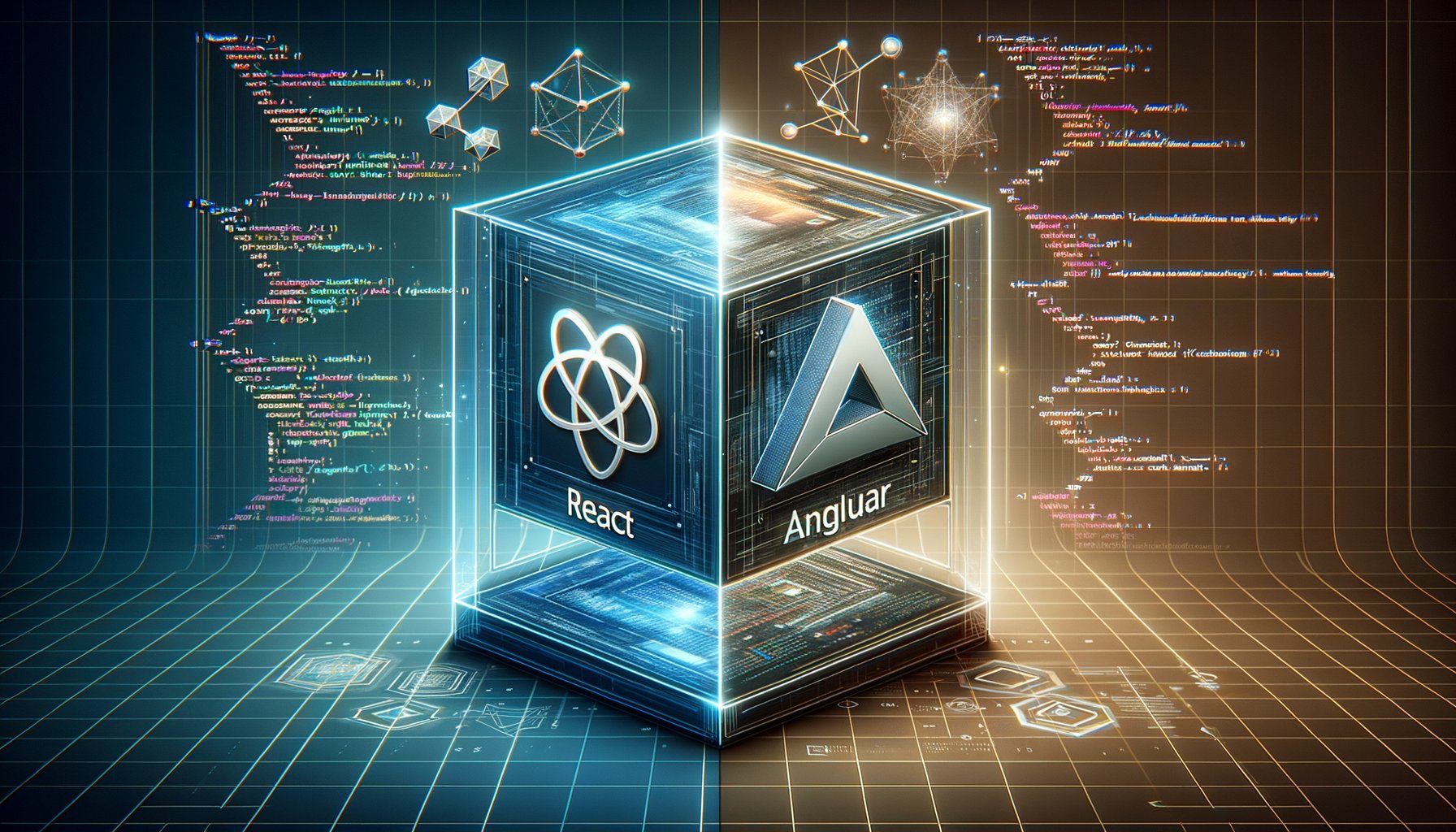Physical Address
304 North Cardinal St.
Dorchester Center, MA 02124
Physical Address
304 North Cardinal St.
Dorchester Center, MA 02124

When it comes to choosing a JavaScript framework for building dynamic web applications, the decision is often a toss-up between React and Angular. Both these technologies have their own strengths and weaknesses, making the choice all the more challenging. In this article, we will delve into a comparative analysis of React and Angular to help you make an informed decision.
Brought to life by Facebook in 2013, React is an open-source JavaScript library used for building user interfaces or UI components. It’s renowned for its simplicity, flexibility, and performance. React employs a virtual DOM (Document Object Model), enabling developers to build applications that can update and render efficiently in response to data changes.
Angular, on the other hand, was developed by Google in 2010 as AngularJS and later rebranded as simply ‘Angular’ from version 2 onwards. Unlike React, which is merely a library, Angular is a full-fledged framework offering a comprehensive solution for front-end development. It uses real DOM and follows an MVC (Model-View-Controller) architecture.
The learning curve for both technologies varies significantly due to their differing complexities. With its simple design and detailed documentation, React is generally easier to learn compared with Angular’s steep learning curve caused by its intricate syntax and extensive list of concepts.
In terms of data binding, React employs one-way data binding, which means the UI elements can’t change the model’s state without the developer’s intervention. This makes code debugging easier and more straightforward. Angular, conversely, uses two-way data binding where model state changes automatically whenever any user interaction leads to a change in the view.
React’s virtual DOM gives it an edge over Angular when it comes to performance. The virtual DOM updates parts of web applications without affecting other sections, leading to faster and more efficient performance. Angular’s real DOM, however, updates the entire tree structure of HTML tags until it reaches the one that needs updating – a process that can slow down application performance significantly.
Both React and Angular enjoy robust community support given their backing by tech giants Facebook and Google respectively. However, React seems to have a larger community on GitHub with more contributors than Angular.
Choosing between React and Angular is not about deciding which one is superior; rather it’s about identifying which framework best suits your project requirements. If you’re looking for simplicity, flexibility, and speed, React might be your go-to option. But if you need a comprehensive solution for large-scale projects with out-of-the-box features like two-way data binding and dependency injection, then Angular could be a better choice.
In essence, both these technologies have their own merits and demerits; what works in one scenario may not work in another. As such, understanding your project needs is paramount before choosing between these two powerhouses of modern web development.
This article has provided an overview of some key differences between React and Angular but there are many other factors like tooling support, testing capabilities etc., that could also influence your decision-making process.